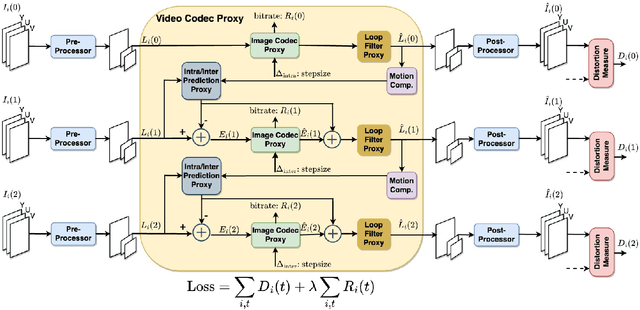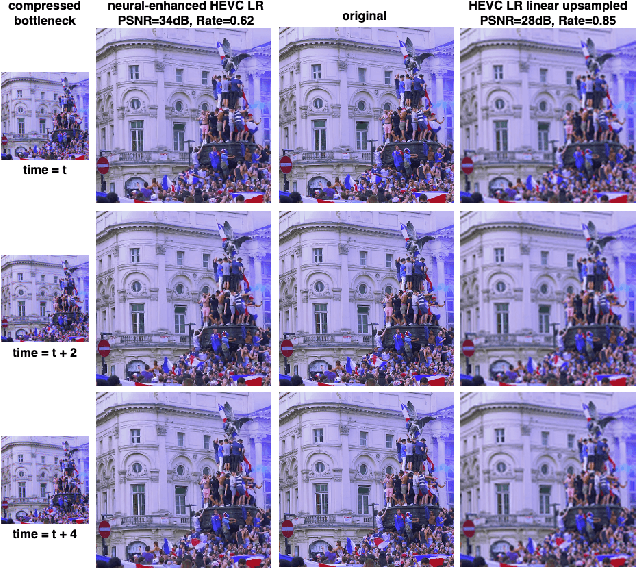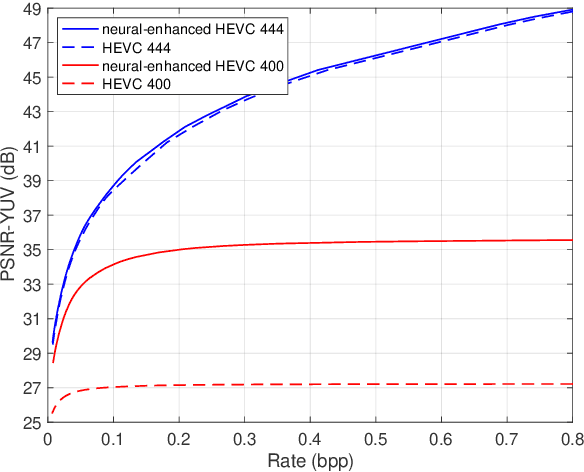Sandwiched Video Compression: Efficiently Extending the Reach of Standard Codecs with Neural Wrappers
Paper and Code
Mar 20, 2023



We propose sandwiched video compression -- a video compression system that wraps neural networks around a standard video codec. The sandwich framework consists of a neural pre- and post-processor with a standard video codec between them. The networks are trained jointly to optimize a rate-distortion loss function with the goal of significantly improving over the standard codec in various compression scenarios. End-to-end training in this setting requires a differentiable proxy for the standard video codec, which incorporates temporal processing with motion compensation, inter/intra mode decisions, and in-loop filtering. We propose differentiable approximations to key video codec components and demonstrate that the neural codes of the sandwich lead to significantly better rate-distortion performance compared to compressing the original frames of the input video in two important scenarios. When transporting high-resolution video via low-resolution HEVC, the sandwich system obtains 6.5 dB improvements over standard HEVC. More importantly, using the well-known perceptual similarity metric, LPIPS, we observe $~30 \%$ improvements in rate at the same quality over HEVC. Last but not least we show that pre- and post-processors formed by very modestly-parameterized, light-weight networks can closely approximate these results.
 Add to Chrome
Add to Chrome Add to Firefox
Add to Firefox Add to Edge
Add to Edge